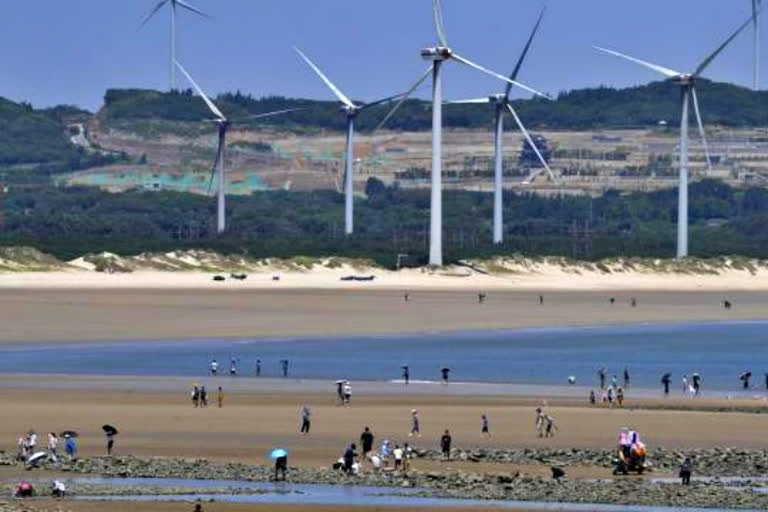Beijing: The world's two biggest emitters of greenhouse gases are sparring on Twitter over climate policy, with China asking if the U.S. can deliver on the landmark climate legislation signed into law by President Joe Biden this week. After Congress passed the bill last Friday, U.S. Ambassador to China Nicholas Burns took to Twitter on Sunday to say the U.S. was acting on climate change with its largest investment ever and that China should follow.
On Tuesday night, China's Foreign Ministry responded with its own tweet: Good to hear. But what matters is: Can the U.S. deliver? The exchange, part of a longer back and forth on Twitter on the issue, is emblematic of a broader worry: U.S.-China cooperation is widely considered vital to the success of global efforts to limit rising temperatures. With the breakdown in relations over Taiwan and other issues, some question whether the two sides can cooperate.
China announced a suspension of talks with the U.S. on climate and several other issues earlier this month as part of its response to a visit to Taiwan by a senior American lawmaker, House Speaker Nancy Pelosi. Climate has been one of the few areas of cooperation between the feuding countries. U.S. officials criticized China's move, with Secretary of State Antony Blinken saying it doesn't punish the United States it punishes the world. Asked to respond, Chinese Foreign Ministry spokesperson Zhao Lijian called on the U.S. last week to "deliver on its historical responsibilities and due obligations on climate change and stop looking around for excuses for its inaction.
The ministry later tweeted some of his answer, and Burns responded four days later with his tweet on the U.S. climate bill. Using the acronym for the People's Republic of China, he ended with: The PRC should follow+reconsider its suspension of climate cooperation with the U.S. China elaborated on its Can the U.S. deliver?" message with a second tweet that suggested U.S. actions, including lifting sanctions it imposed last year on solar industry exports from China's Xinjiang region because of allegations of forced labor.
The back and forth highlights a perception divide between the longstanding superpower that wants to lead and the rising power that no longer wants to feel bound to follow anyone else's direction. U.S. climate envoy John Kerry has been pushing China to set more ambitious climate goals. China's response has been that its goals are realistic, given its development needs as a middle-income country, while the U.S. sets ambitious goals that it fails to achieve.
China's ruling Communist Party generally sets conservative targets at a national level, because it doesn't want its performance to fall short. Those targets are sometimes exceeded, though, in the eager pursuit of those goals by local officials. China should be able to do better than its national targets indicate, said Cory Combs, a senior analyst with the Trivium China consultancy. But of course, those local plans are all subject to failure and delays, so it's impossible to tell quite what they'll add up to. (AP)



